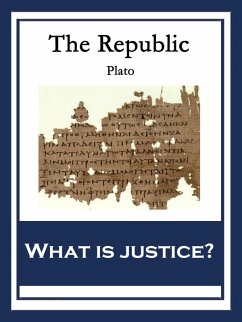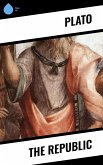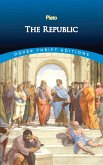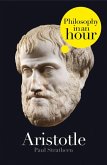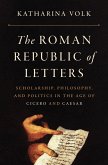The question The Republic sets out to define is "What is justice?" Given the difficulty of this task, Socrates and his interlocutors are led into a discussion of justice in the city, which Socrates suggests may help them see justice in the person, but on a grander (and therefore easier to discuss) scale ("suppose that a short-sighted person had been asked by some one to read small letters from a distance; and it occurred to some one else that they might be found in another place which was larger and in which the letters were larger"). Some critics (such as Julia Annas) have adhered to this premise that the dialogue's entire political construct exists to serve as an analogy for the individual soul, in which there are also various potentially competing or conflicting "members" that might be integrated and orchestrated under a just and productive "government."
Dieser Download kann aus rechtlichen Gründen nur mit Rechnungsadresse in A, D ausgeliefert werden.

